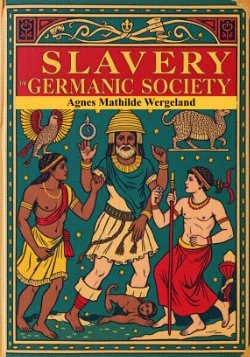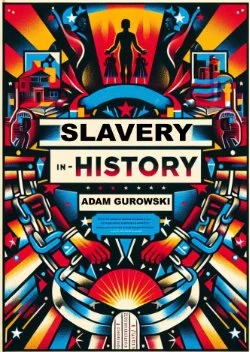By Agnes Mathilde Wergeland (Author), Colin Heston (Introduction)
Slavery in Germanic Society sets out to trace the evolution of slavery from the late Roman world through the early and high medieval periods. Wergeland’s analysis begins by distinguishing classical slavery—predicated on the total alienation of the enslaved person from kinship, community, and legal personhood—from the systems of servitude that emerged in Germanic societies. As Germanic tribes moved into former Roman territories, they both absorbed and modified existing practices of unfree labor. Captives taken in war, debtors who had fallen into bondage, and the descendants of slaves formed a stratum of society that was neither fully outside nor fully within the emerging frameworks of medieval law.
Wergeland is especially attentive to the role of law codes in shaping and regulating these relationships. The Salic Law, the Lex Saxonum, and other Germanic legal compilations provide glimpses into a world where freedom and unfreedom were not binary categories but existed along a continuum. The distinction between a servus (slave), a colonus (tenant bound to the land), and a liber homo (freeman) was fluid and often contested. Her work suggests that these categories were not only legal but also deeply embedded in cultural ideas about honor, lineage, and the obligations of lordship.
Wergeland’s historiographical legacy is also tied to the broader cultural currents of her time. Writing in the aftermath of the American Civil War and during the height of European colonial expansion, she was acutely aware of slavery’s moral and political resonance. While she does not draw explicit parallels between medieval and modern forms of servitude, her decision to study the topic reflects a world in which questions of liberty, labor, and human rights were urgently contested.
In returning to Slavery in Germanic Society During the Middle Ages today, readers encounter a work that is both a product of its era and strikingly relevant to our own. It invites us to consider how deeply embedded systems of inequality are in the fabric of society, and how they can endure even as their outward forms change. Wergeland’s careful scholarship provides a foundation for ongoing conversations about freedom, coercion, and the ways in which human societies organize power and labor.
This edition reintroduces Wergeland’s study to a new generation of readers at a moment when the legacies of slavery and unfreedom are once again at the center of global debates. It offers not only an invaluable historical resource but also a reminder of the intellectual courage of a scholar who, against the odds, claimed her place in the academy and in the long conversation about justice and humanity.
Read-Me.Org Inc. New York-Philadelphia-Australia. 2025. 93p.







